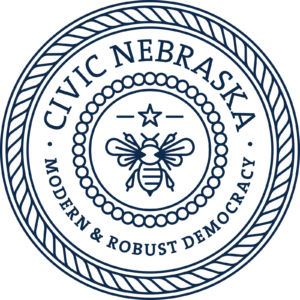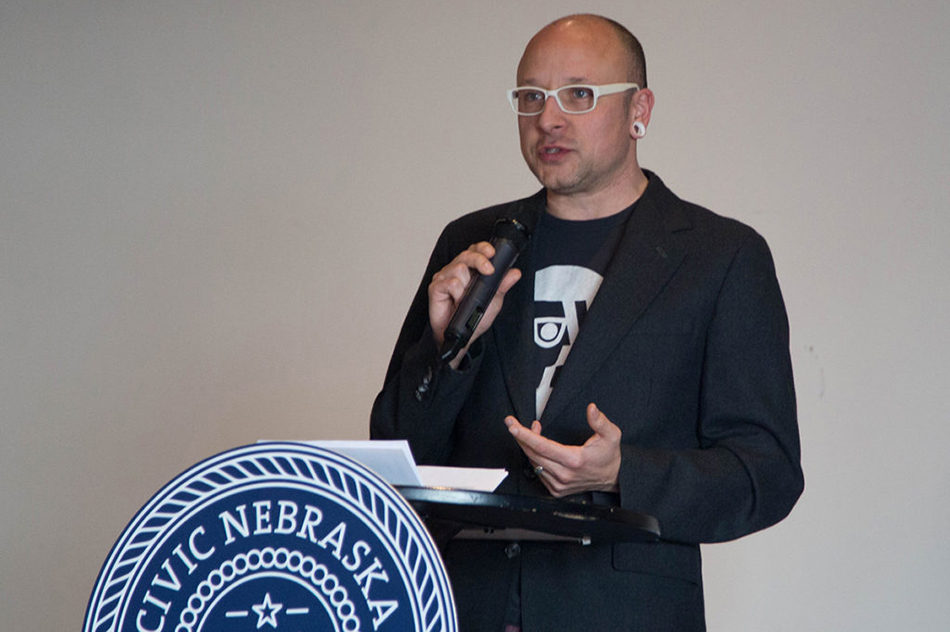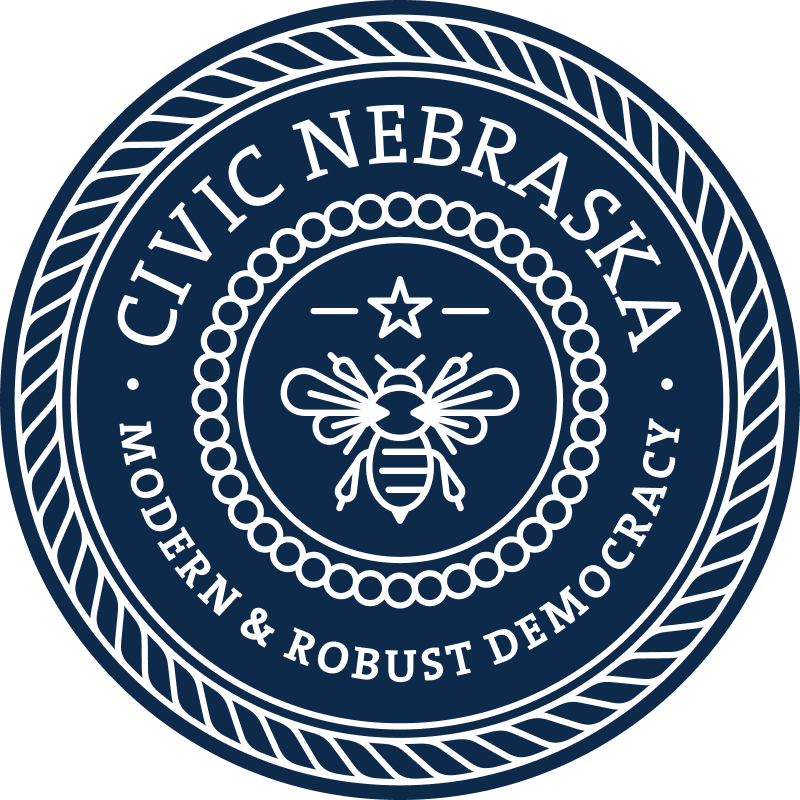
Good morning, my friends!
My name is Brian Smith, and I have coordinated many social gatherings, including TEDxOmaha, Omaha Public Meetings, and today’s Civic Saturday.
I am grateful to see each of you today in this lovely space, The Bay. This community center sparks hope in me, and it’s more than the caffeine. The story of The Bay – its history and its continuance – gives us proof that we can address our biggest social challenges together.
Give a big shout if you have met Mike Smith. Mike is the instigator behind The Bay, and he has risen to celebrity status in the intersection of homeless outreach, skateboarding, and youth culture. Today, we are the beneficiaries of his devotion to helping people.
While working at a homeless outreach organization, Mike used his skateboard to travel around downtown, and he passed out supplies to people experiencing homelessness. One day, a friend joined him. Then, a couple more people showed up to help. They gave socks and food, conversation and respect. Then, for some reason, a dozen people showed up to skate and serve. Then more. It was magnetic. Mike helped teenage skateboarders develop a sense of worth through service. He connected two marginalized groups in making a tiny part of the world better. He called it Skate for Change.
And it didn’t stay here in Lincoln. People responded by starting their own Skate for Change chapters in other cities. Then, Mike and his co-conspirators noticed that kids needed a place to go. So they rented a place in the mall for kids to skate and stay out of trouble. After a while, it became apparent that the mall wasn’t an ideal space. It closed too early, and teens needed a more flexible space. Here we are today, gathered in a space designed for meeting and fellowship, and, in the adjoining space, skating.
Mike is a charismatic leader, but he doesn’t tell people what to do. He started by himself, skating around and passing out socks and toothpaste. People saw him and joined, doing the same things. They were welcomed in the effort. When the next idea was to provide a safe place for kids, they helped because their contributions were valued.
And as the momentum grew, the entire community benefitted. What began as one person’s effort has helped thousands of people realize their own power. Encouraged by each other, they made a difference.
We all rise together. At least, when we lift together.
You see, the story of Mike Smith isn’t really about Mike. He addressed a tiny bit of an insurmountable problem and made a difference to the people he served. He lifted, but at first he lifted alone. Mike’s power to end homelessness or the social stigma attached to skateboarders was limited to his personal power. His power was amplified when one person joined him and was welcomed and recognized. Their power was amplified a thousand times when each new person was compelled to help and was welcomed and recognized. All lift, all rise.

This is how democracy works. All lift, all rise. Part of our American creed – what we profess to believe – is that we have a government of, by, and for the people. We are the ones in charge.
But does it feel that way now? “Of” the People? “By” the people? “For” the people? Do you feel – in this moment – powerful?
I just gave you a triumphant story of everyday people in action who addressed problems too big to overcome for one person … but is that realistic for us to expect when it comes to America? We are sitting in a space that shows what is possible when we lift together, but still, do you feel like you make a difference?
I don’t blame you if you feel lost. These are trying times. We are all involved in a struggle larger than we can manage alone. I will admit that preparing to speak with you today has been one of the most emotionally taxing projects I’ve done this year. I’ve been searching for hope. I’ve been searching for signs that we can come together, even though it feels like America is tearing apart. That desperation to participate in something good is what drove me to train with Citizen University to gather you here today for Civic Saturday.
Every day’s news is “us vs. them.” Our side, their side. Just this week, we had more impeachment hearings, and our representatives are hurling insults at each other. Every prison in Nebraska is overcrowded, and police unions are calling for more. In the coming census, Lincoln’s people – especially the refugee population – will likely be undercounted because of fears whipped up over immigration.
I want to know: Are we fighting for justice or are we fighting each other? Are we telling the right stories? Are we having the right arguments? And how can we have better arguments?
The United States of America was not created with a clear direction. It was formed through many arguments. The story we tell in History class makes the story seem predetermined. We have all heard the story so many times, that we know the ending when we start to tell it. But it was not a clean process. There was so much fighting that no one involved knew if they could create a government that worked. Our founding fathers were “founding fighters,” as the songs of Hamilton attest.
Our government was founded on a series of ideals, supported by a framework for the cycle of hope and failure and consequences. What are our ideals? Life, liberty, and the pursuit of happiness? Equal rights? Equal opportunity? Our reality rarely lives up to our ideals – as individuals, as a city, or as a nation. But we can all agree that we have to try.
If you name one challenge facing our nation, our state, or even your neighborhood, they are communal problems. They are shared. They are our together to address. All lift, all rise.

Today, you should know that there is space for you because democracy is a mess. It’s fun to say “democracy is a mess.” Say it with me.
DEMOCRACY IS A MESS.
It’s supposed to be a mess because it involves many voices. Our government is not just a government “of the people.” All governments function that way. Ours is “by the people.” Democracy is us. We are the government. We are the ones in charge.
Does it feel that way?
In the United States, we have a representative democracy. We elect people from among our ranks – “by the people” – to represent our interests – “for the people.”
I’m going to ask you to meditate on a question: what is your role in representative democracy?
…
Did you find your space?
Let’s talk about power in representative democracy and your space in the mess.
“Power” isn’t a dirty word. It just means you can influence the people around you to act. Each of us influences people, just as we heard your observations about informal leadership. Just like “citizenship” is more about behavior than legal status.
The most visible way to exercise power in a representative democracy is to get elected to office. Our representatives are actively and directly involved in democracy because they are involved in the arguments. You can bet they feel their power.
- Raise your hand if you’ve held office. Keep them up.
- Raise your hand if you’ve run for office.
- Raise your hand if you’ve been asked to run.
- Raise your hand if you’ve thought about it.
We want to be involved, don’t we? We also exercise power when we cast votes in elections. And that is powerful action. People have fought for that right since the inception of our country. Some are still fighting for it. Voting is a vital part of “by the people.” But how often do you vote? Once a year? And then what? Is voting the end of our involvement in representative democracy? The way we think of representative democracy limits us. It limits our roles to “representative” and “those who are represented.” Are you satisfied with that?
There is a saying in civics, and this has become my core political philosophy: NOTHING ABOUT US WITHOUT US
Say it with me: NOTHING ABOUT US WITHOUT US
Again: NOTHING ABOUT US WITHOUT US
We want to be involved, don’t we? I say there is space for you. Space between voting and running for office. Space to be part of the arguments – the better arguments – that focus on “by the people” and “for the people.” The lifting that raises us all up.
NOTHING ABOUT US WITHOUT US claims a place in the process of deciding, in the argument, and in the solution. We are the government, right? We have a space, even if we were not elected. We have a space, even if we didn’t vote or can’t vote. We have a space in democracy because the very meaning of the word is “rule by the people.” Representative democracy does not mean we are shut out.

We gathered today because we want things to change. We want our lives to change. We want our communities to change. We want to be involved.
We all have power as individuals and as a group. Reclaiming our shared power means a government of, by, and for the people. Power means involvement. Power means organizing for what you want. Power means changing the conversation. Do not relinquish your voice to a representative. That is not where democracy ends. We should also include participatory democracy, where we work with representatives to form policy.
The Fight for 15 began in 2012 when 200 fast-food workers in New York City walked off the job to demand a $15 an hour wage. According to their history:
“When we first took the streets, the skeptics called us dreamers. They said a $15 wage was “unwinnable.” We didn’t listen. We organized and we fought for what we knew was right.
We didn’t win these increases because we elected supportive politicians to office. We won because we made them support us. That’s the power of direct action, of taking to the streets, of organizing.
We’ve already won raises for 22 million people across the country – including 10 million who are on their way to $15/hr – all because workers came together and acted like a union.”
All lift, all rise.
When you think of the civil rights struggles of the 1950s and 1960s, it’s the same story. We didn’t win because our elected representatives supported us. Representative democracy was not enough, and we took direct action.
When you think of the gender rights struggles of the 1970s, it’s the same story. We didn’t win because our elected representatives supported us. Representative democracy was not enough, and we took direct action.
When you think of the LGBT rights struggles of the 1980s, it’s the same story. We didn’t win because our elected representatives supported us. Representative democracy was not enough, and we took direct action.
All lift, all rise.
And in case you think the civil rights era is over, it is not. The argument continues, and we are still called to lift together.
And in case you think the gender rights era is over, it is not. The argument continues, and we are still called to lift together.
And in case you think the LGBT rights era is over, it is not. The argument continues, and we are still called to lift together.
We inherit the past. We cannot escape it. We also inherit responsibility for creating the future. We cannot escape that either. We are still in the struggle. All lift, all rise.

Again, I will remind you that democracy is a mess. Again, I will remind you of the constant fights we hear on the news. Again, I will remind you of how difficult it feels in this moment to be part of our democracy.
I am with you. I feel overwhelmed. But why be more afraid of the solution than the problem? You can be afraid and still act; bravery does not require fearlessness. The threats we face are ever so real. Fear should spur you on.
It’s working for my friends.
- Leo is afraid that Black children are being harmed because the local school system is suspending them at much higher rates than their peers and at much younger ages. He is leading a coalition of people to force a solution.
- Ferial is afraid that people are being encouraged to harden their hearts to people in need. She is assisting teenagers who champion a movement for kindness.
- Chuck is afraid that historic buildings are being lost to greedy developers. He is leading a Facebook group to educate the community about what we have already lost and what can be saved.
Just like Mike Smith, my friends are using their power to address our shared challenges. Their power is amplified by each one person who joins and is welcomed and recognized. All lift, all rise. In a recent public presentation, I encouraged people to do two things: to become an expert in one issue and to build coalitions. By pursuing these endeavors, we individually become strong in one particular area, and we also build the framework for supporting each other in times of need. In this way, people of like minds can focus on specific issues while respecting the diversity of the greater population and working for the common good.
I compare this duality to a sunflower. When it blossoms, many brilliant yellow petals make up a single flower. As it ages, the seeds ripen and provide opportunities for exponential growth during the next year. Common purpose and diversity work together. Is anyone here a sports fan (Know your audience, right)? What language do you use around the team? “Who are we playing?” “Are we going to win this weekend?” “Who’s going to be our coach next year?” None of us are on the team. We are spectators. Still, we use the language of participation, even though it’s a representative sport. But in a democracy, we are all participants, even when we have representatives.
Our revolutionaries were participants.
The people who advocated for our rights were participants.
Mike Smith and his skater friends were participants.
I’m going to ask you to meditate on a question again: what is your role in representative democracy
…
Did you find your space?



